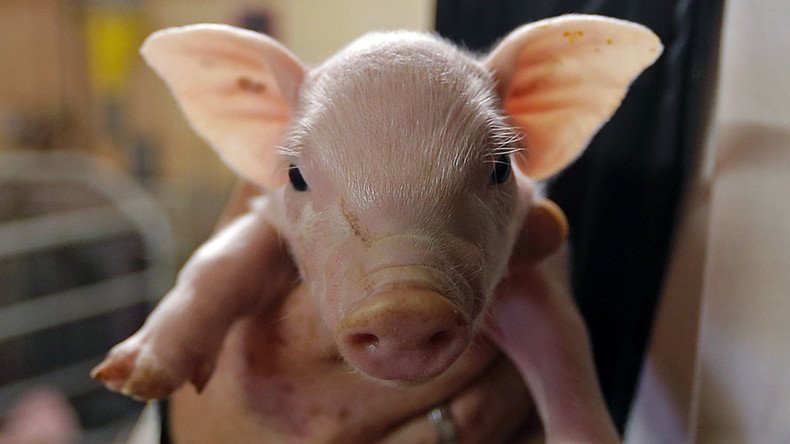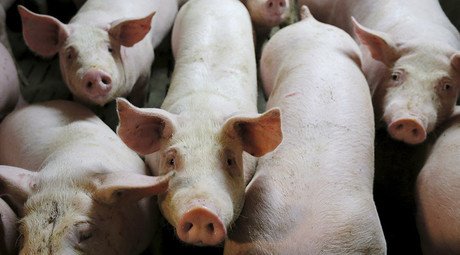Scientists create gene-edited pigs, now immune to deadly virus

Scientists believe they may have found the answer to combat a deadly pig virus which costs the pork industry billions of dollars a year. They say by using gene editing, they have made pigs resistant to Porcine Reproductive and Respiratory Syndrome Virus (PRRSv).
The virus, otherwise known as blue-ear disease, causes about $2 billion of losses annually in the EU and US. It had been baffling scientists who were unable to find a cure. However a British animal genetics firm, Genus, working alongside researchers from the University of Missouri, say they have quite literally cracked the code.
Publishing their findings in the journal Nature Biotechnology, they found that by denying the pigs a specific protein, which the virus uses to spread within the animals, they proved to be resistant to the disease.
Specifically for the test, the scientists bred three pigs without the protein. They found that the swine did not lose any weight and did not get sick, which are common traits with PRRSv.
"The demonstration of genetic resistance to the PRRS virus by gene editing is a potential game-changer for the pork industry,” Genus Chief Scientific Officer Jonathan Lightner said on the company’s website.
He added that the company faces several challenges to try and “develop and commercialize this technology,” however, he mentioned that “the promise is clear,” and that Genus will look to develop the technology for the well-being of animals, farmers and consumers.
While the findings could prove incredibly useful to the animal world and for agricultural uses, there are concerns the technology could be used on humans to create ‘designer babies.’
The technology allows scientists to edit genes by using biological ‘scissors’ that operate a bit like a word-processing program that can find and replace selected stretches of DNA.
In December, US scientists and activists called for a global prohibition on the genetic modification of human embryos, saying "there is no justification for, and many arguments against" the looming technology.
Such developments "could irrevocably alter the nature of the human species and society," they said before last week’s International Summit on Human Gene Editing in Washington, DC.
READ MORE: No 'designer babies': Groups warn of potential dangers in human embryo modification
"Gene editing may hold some promise for somatic gene therapy (aimed at treating impaired tissues in a fully formed person)," an open letter signed by numerous scientists read. "However, there is no medical justification for modifying human embryos or gametes in an effort to alter the genes of a future child."
In May, the White House banned geneline editing, pending more research into the practice. In September, a group of researchers in the UK issued a plea for a wide-ranging ethical debate on the potential pros and cons of such genome editing.













